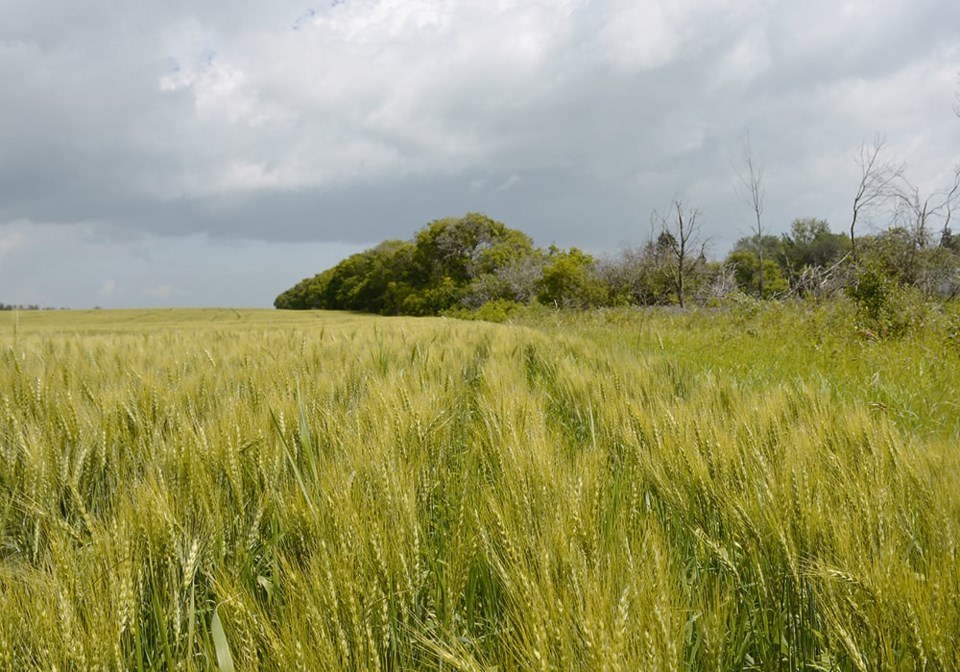Real estate is a hot topic in Canada. Most Canadians are acutely aware of how home prices and rents have skyrocketed in the last 15 years.
While many are familiar with urban real estate trends, few are aware of the restructuring of farmland ownership. Since 2014, we’ve been studying changing land tenure patterns on the Prairies, where 70 percent of Canada’s agricultural land is situated.
Our research reveals three major trends: ongoing farm consolidation, increasing land concentration and expanding investor ownership of farmland.
This is leading to more land inequality.
Our research found that investor ownership of farmland in Saskatchewan was negligible in 2002, but had climbed to nearly one million acres by 2018 — almost 18 times the size of Saskatoon.
Saskatchewan sought to tighten rules on farmland ownership in 2016, but it seems to have done little to slow the pace of investor acquisitions.
Robert Andjelic, an investor from Alberta, is Canada’s largest landowner with 225,435 acres in 92 Saskatchewan rural municipalities. His company leases farmland to dozens of farmers and undertakes “land improvements,” such as clearing trees, brush and other natural habitat, as well as filling in wetlands to farm every parcel.
Another major investor is Avenue Living, which has about 83,000 acres.
As investors gobble up more land, there is growing unease among farmers. Investors argue they are helping farmers by relieving them of their assets and providing young farmers with access to land through rental agreements. Given that, on average, investors pay more for land compared to other buyers, these deep-pocketed buyers have contributed to the rapid increase in farmland prices.
In our survey of 400 prairie farmers, 76 percent of those younger than 35 indicated that non-farmer investor activity has had a negative or very negative effect on the local farmland market. With older farmers, 83.2 percent showed that investor activity has had negative or very negative impact on the local community.
Farmers also expressed unease about the growing economic clout of large farmers (more than 10,000 acres) and mega-farms (more than 30,000 acres).
Investors are not the only entities with vast landholdings. Some of Saskatchewan’s largest grain farms own tens of thousands of acres. According to our research, Monette Farms owned some 63,000 acres of land in 2018, and farms much more than that with production sites in Montana, Arizona and Saskatchewan.
One Organic Farms reportedly operates on a land base of 40,000 acres, with the large majority of the land rented from Andjelic Land Inc., Saskatchewan’s largest investor-owner.
Interviews with more than 100 farmers in Alberta, Saskatchewan and Manitoba revealed many are deeply concerned about the environmental degradation wrought by big agriculture. Others argued these players out-compete locals for farmland and contribute little to local communities.
Accessing land is the biggest barrier for young and new farmers who want to get into farming. Land prices are soaring above what is justified by its productive value.
At the same time, farm debt is the highest it’s ever been and the Prairies are experiencing an emptying out of the countryside.
We should also be concerned about the hyper-productive, fossil-fuel dependent model promoted by many big investors and mega-farmers, which will make it harder for Canada to meet its climate change commitments.
Progressive agrarian and food movements propose a different future — one based on food sovereignty. This would entail equitable access to land for farmers, sustainable livelihoods and valuing farmland for its social and ecological worth, as well as its productive value.
As the climate crisis intensifies, there has never been a better time for urban and rural Canadians to work together to transform food systems.
Annette Desmarais is a researcher and professor in the areas of human rights, social justice and food sovereignty and an adjunct professor in the Department of Environment and Geography at the University of Manitoba.


